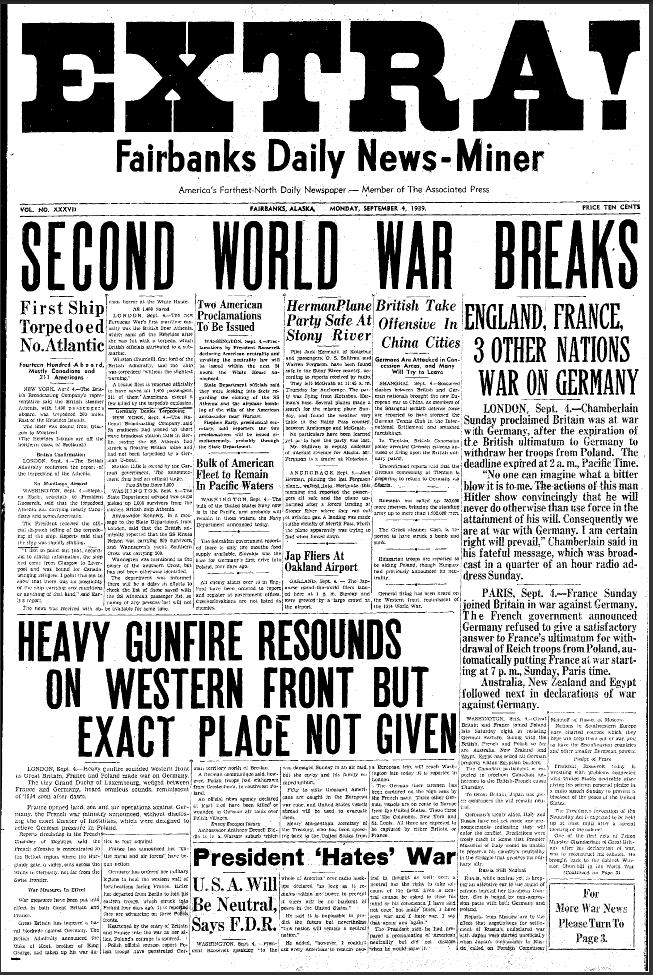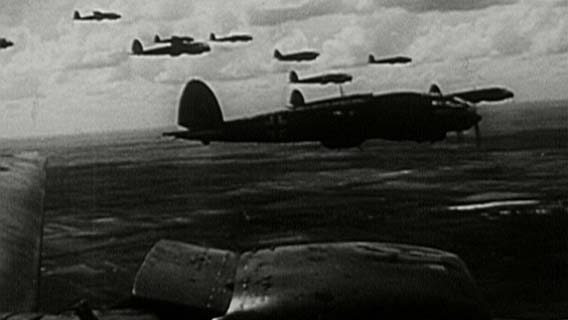 On September 3, 1939, following an attack that was prompted by Hitler on ally nation Poland. Britain and France declare war on Germany. Athenia, which was a British ocean liner, was the first casualty in the encounter. It was sunk by a German U-30 submarine, in assumption that the sub was armed and belligerent towards German forces. 112 passengers of more than the 1100 that were on board the Athenia lost their lives during this first attack, and several others were injured. Of these 112 casualties, 28 were American; although this tragedy occurred during the initial attack, President Roosevelt declared that no actions were to be taken by the US, and that the US would remain neutral, and would not join forces with Britain and France in order to takedown the German forces.
On September 3, 1939, following an attack that was prompted by Hitler on ally nation Poland. Britain and France declare war on Germany. Athenia, which was a British ocean liner, was the first casualty in the encounter. It was sunk by a German U-30 submarine, in assumption that the sub was armed and belligerent towards German forces. 112 passengers of more than the 1100 that were on board the Athenia lost their lives during this first attack, and several others were injured. Of these 112 casualties, 28 were American; although this tragedy occurred during the initial attack, President Roosevelt declared that no actions were to be taken by the US, and that the US would remain neutral, and would not join forces with Britain and France in order to takedown the German forces.
British Response
 British forces took a different response following the initial strike after the attack, and dropped over 13 tons of propaganda (leaflets), over Germany, which discussed anti-Nazi information. The following day, September 4, Britain began bombing German ships, which led to several casualties and great losses on both sides. During this time, they were under attack to avoid injuring German civilians, in order to try and maintain some semblance of peace, during the attacks. On the opposing end, German soldiers were not given these orders to attack only soldiers.
British forces took a different response following the initial strike after the attack, and dropped over 13 tons of propaganda (leaflets), over Germany, which discussed anti-Nazi information. The following day, September 4, Britain began bombing German ships, which led to several casualties and great losses on both sides. During this time, they were under attack to avoid injuring German civilians, in order to try and maintain some semblance of peace, during the attacks. On the opposing end, German soldiers were not given these orders to attack only soldiers.
French Attack
Two weeks after this attack, the French forces made their second attack, and went towards Germany’s western border. They were severely restricted in these attacks, as they had limits and were restricted to a 90 foot border during these initial attacks, namely due to the fact that Germany is bordered by Luxembourg and Belgium, both which were neutral nations at the time. In turn, German troops mined this narrow passage, which led to an even further delay by the French who were planning the attack.